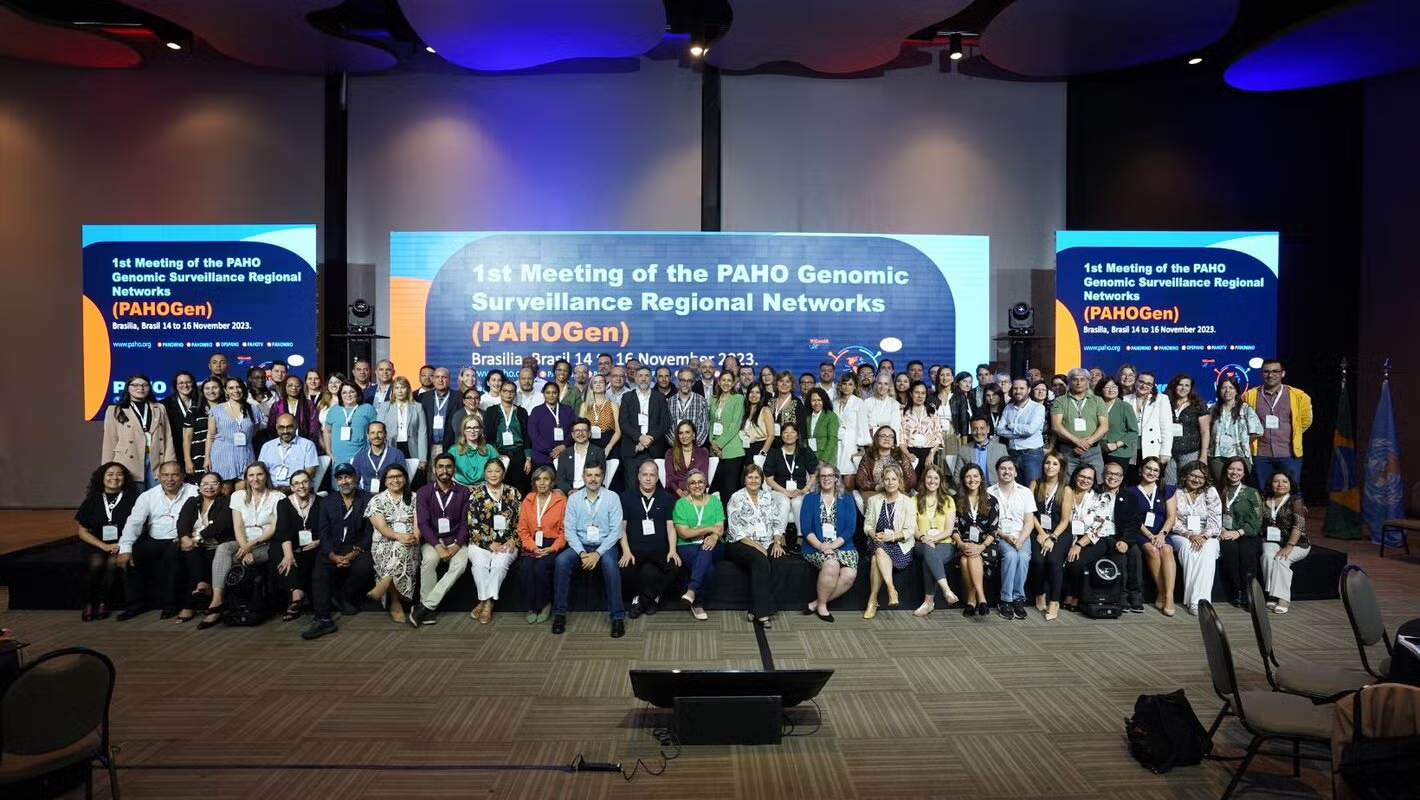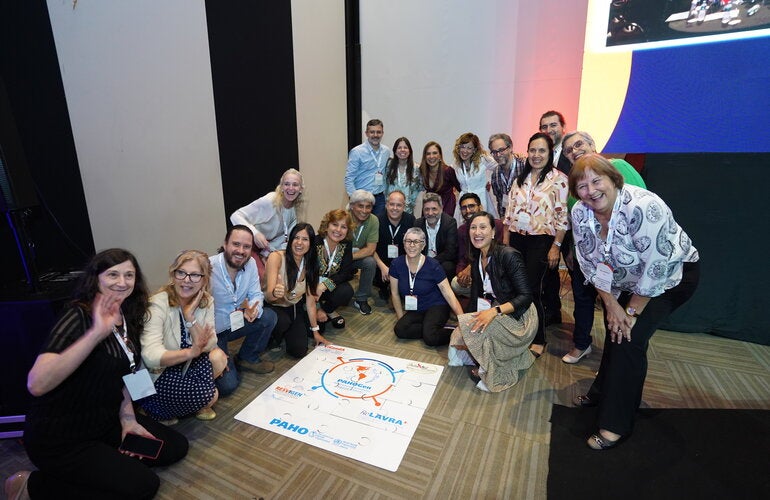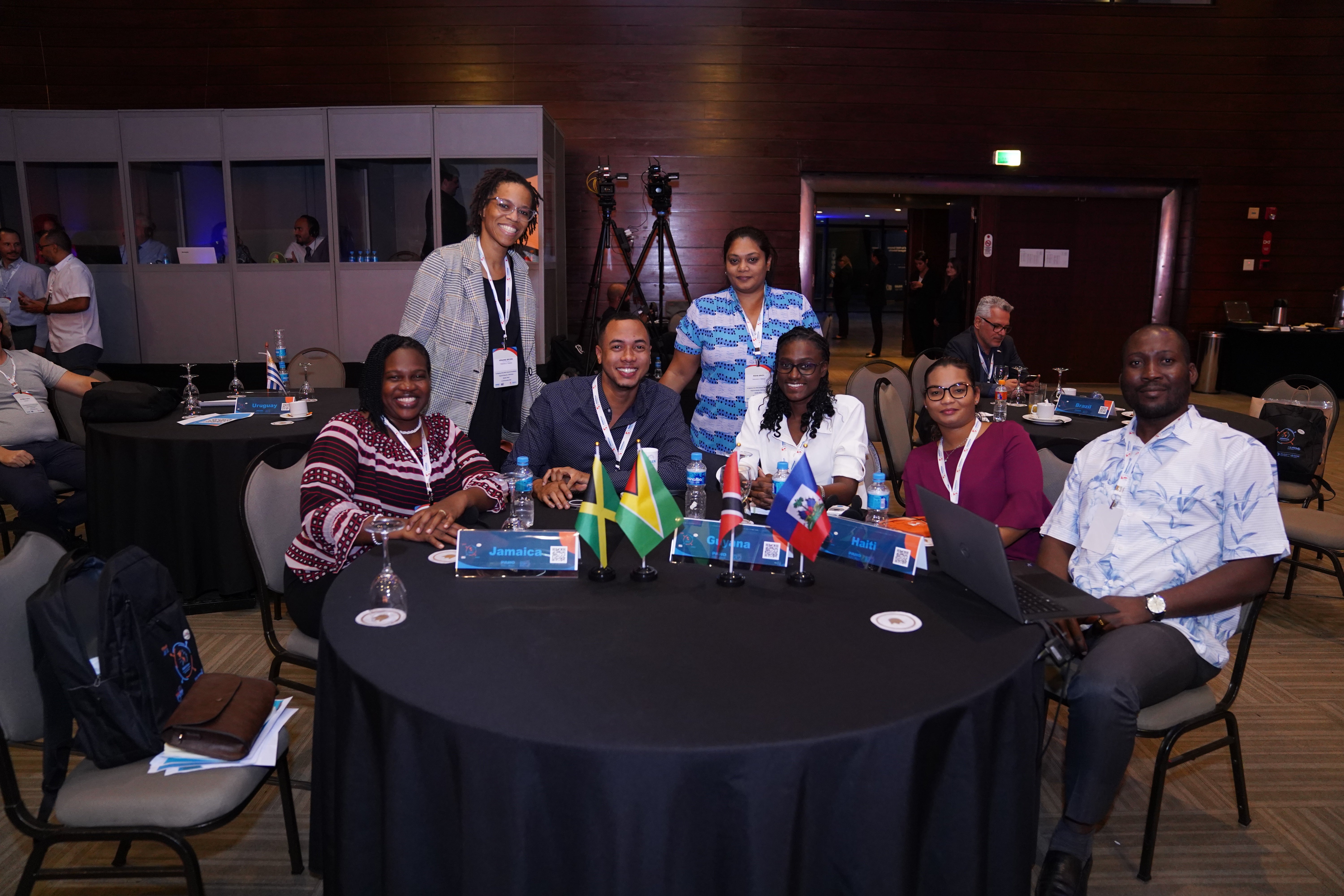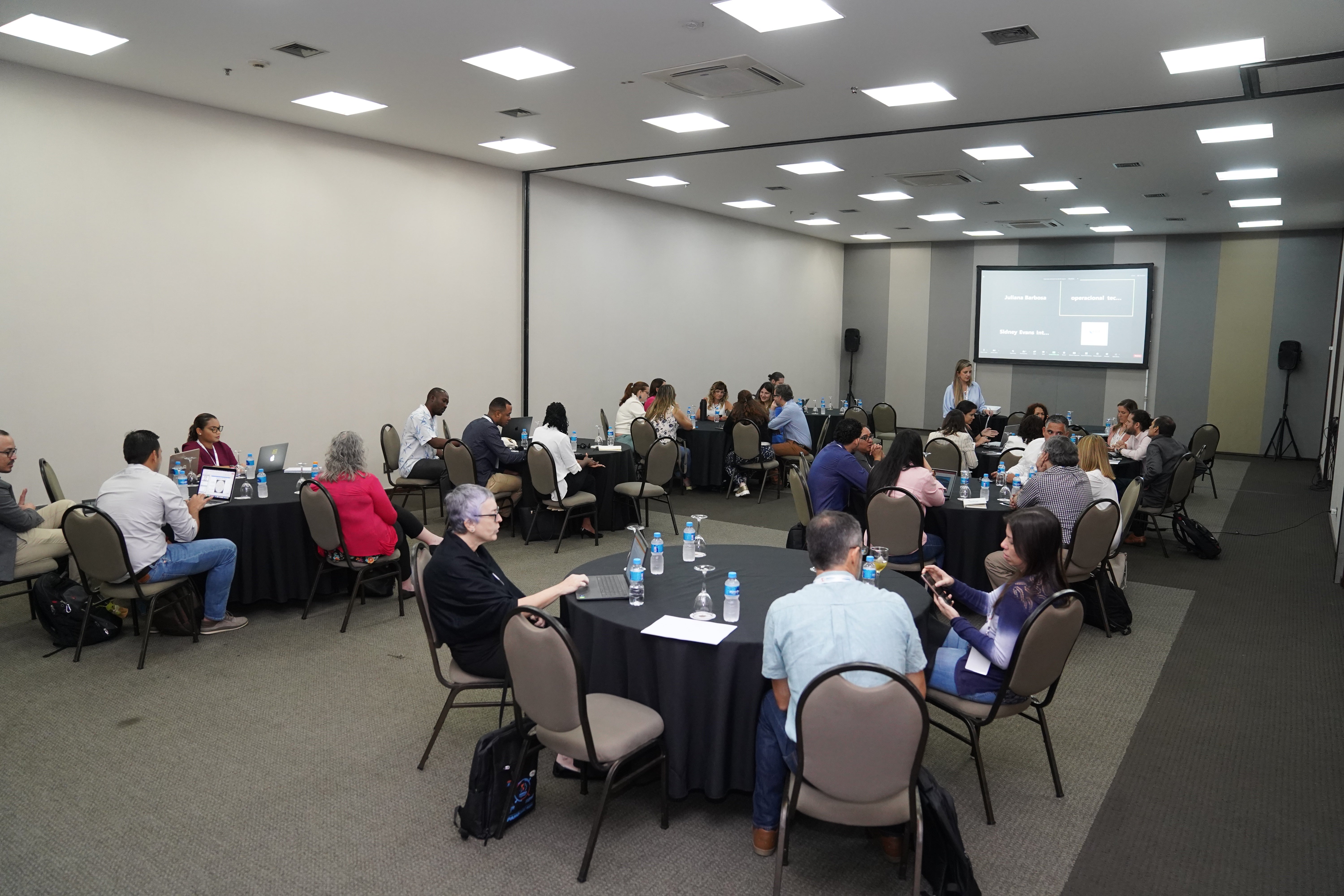
17 November 2024. Brasilia, Brazil (PAHO)- With the objective of improving genomic surveillance of emerging pathogens in the Region of the Americas, the Pan American Health Organization (PAHO/WHO) has organized the first meeting of the PAHO Regional Genomic Surveillance Networks (PAHOGen). This collaborative effort, supported by the Wellcome Trust Foundation, emphasizes the importance of PAHO and its genomic surveillance networks in preserving public health in the Region of the Americas and globally. Experts from various genomic surveillance networks led or coordinated by PAHO participated in this historic meeting, marking a significant milestone in responding to public health threats in the Region.
Genomic surveillance plays a crucial role in the early identification of emerging pathogens and in the characterization of antimicrobial resistance (AMR) mechanisms. In this context, PAHO has worked diligently alongside Member States to enhance laboratory sequencing capacity at both national and regional levels, as well as to produce timely data to support surveillance systems for different pathogens.
Within the PAHO-coordinated genomic surveillance networks, notable instances highlight the Organization's unwavering dedication to preserving public health in the Americas. PulseNet Latin America and the Caribbean Network (PNALC) is one such network that focuses on pooling regional data to monitor foodborne pathogens at a global level. In 2014, PAHO established a strategic collaboration with the United States Centers for Disease Control and Prevention (CDC), and the Network of Arbovirus Laboratories of the Americas (RELDA), This partnership resulted in the ViGenDA project, which later evolved into the genomic surveillance network for dengue virus and other arboviruses.
In 2020, PAHO implemented the regional Genomic Surveillance Network for COVID-19 in the Region of the Americas (COVIGEN), with the specific objective of strengthening SARS-CoV-2 surveillance. This network has now broadened its scope and evolved into the Regional Genomic Surveillance Network for Respiratory Viruses (RESVIGEN), which was officially launched during the meeting. RESVIGEN's focus extends to various respiratory viruses, including influenza, Respiratory Syncytial Virus, and COVID-19. On the other hand, the Antimicrobial Resistance Surveillance Network (RELAVRA+), established for the monitoring and surveillance of AMR in Latin America and the Caribbean from a "One Health" perspective, is developing and implementing specific action lines to enable countries to access genomic characterization of AMR mechanisms.
This first ever regional genomic surveillance networks meeting, held on November 15-16, 2023, in Brasilia, Brazil, brought together 120 experts representing 26 countries and territories across the Americas. It focused on several key elements for advancing genomic surveillance within the networks. These included sharing experiences in genomic surveillance, discussing strategies to improve geographic representation in data collection, and addressing the timeliness and quality of the information generated. Collaboration with clinical epidemiology and epidemiology is essential to facilitate seamless data integration, enabling well-informed decision-making and the effective implementation of public health policies at both local and regional levels. Furthermore, opportunities for bilateral and multilateral cooperation among network members were explored, in accordance with the "Regional Genomic Surveillance Strategy for Epidemic and Pandemic Preparedness and Response" which was approved by the member states at the 30th Pan American Sanitary Conference in September 2022. This strategy aims to strengthen cooperation among PAHO's regional genomic surveillance networks to provide effective genomic surveillance that meets public health needs.
The meeting's conclusions underscored a strong commitment to genomic surveillance of potential pandemic, emerging, and endemic pathogens. Moreover, a customized plan was formulated to enhance genomic surveillance and sequencing capabilities within the countries, tailored to align with the specific attributes of the surveillance networks operating under the framework of PAHOGen. Dr. Jairo Méndez, who leads the project "Establishing Genomic Epidemiology Centers throughout Latin America", highlighted the valuable contributions and collaboration of the Wellcome Trust and the Pan American Health Organization (PAHO) in the advancement of scientific knowledge and its integration into the public health surveillance systems. He also emphasized the indispensable need to uphold this collaborative partnership in order to continuously promote health improvements throughout the Americas.






